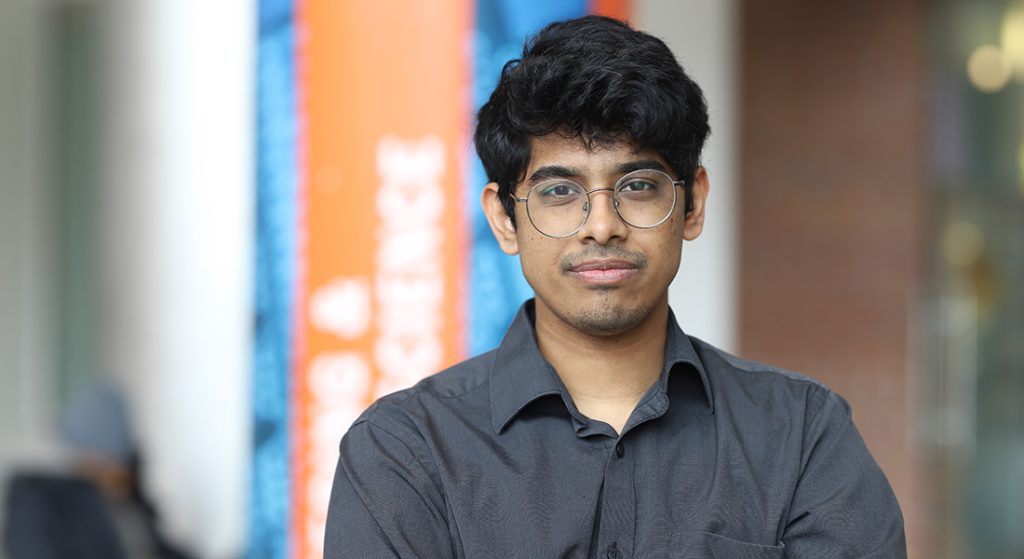
Anand Wadurkar’s journey in biomedical and chemical engineering is a testament to his resilience, passion, and relentless pursuit of knowledge. His interest in science and engineering began at a young age, when, at just 15, he started exploring various STEM projects. From enhancing soil fertility by utilizing biodegradable waste to excelling in robotics competitions, Anand’s passion for science and engineering grew stronger, eventually gaining him recognition in his graduate school journey.
Hailing from Mumbai, India, he received his bachelor of technology in biotechnology and began his professional career at the bioprocess company, BiOZEEN. However, the desire to continue pursuing his education bubbled within him, which made him apply to Syracuse University’s Department of Biomedical and Chemical Engineering.
“As soon as I started the program, I had a co-op opportunity with the Center for Advanced Science and Engineering (CASE) for about 5-6 months at Triton Bio,” says Wadurkar.
Computational work was another aspect of biotechnology he found most interesting, and this eventually became his primary pursuit. He discovered this passion during the graduate student orientation at the College of Engineering and Computer Science (ECS) and was captivated as Biomedical and Chemical Engineering Professor Shikha Nangia presented her computational research on the blood-brain barrier.
He then became a research assistant in Professor Nangia’s lab, where he explored his interests in molecular modeling and simulation. This computational process simulates and analyzes the properties of biological molecules. One project he is working on is enhancing small molecules to destroy bacteria or viruses. This molecule can prevent infections in biomedical devices, such as knee or hip implants, by forming a protective layer using biomaterials like microgel or hydrogel.
Wadurkar has also co-authored two research papers, one paper which involved predicting the clustering of devised small molecules. The paper was a huge breakthrough in small molecule research, and he even won a Master’s Thesis Prize. “The small molecules I work with are not naturally found in the body, but it can open great pathways to understand what’s in our body like proteins, cell membranes, and other things,” he says.
He also attended the Foundations of Molecular Modeling and Simulation (FOMMS) 2024 and International Community for the Advancement of Peptoids (ICAP) conferences in Berkeley, California where professionals worldwide gather and discuss their research and the latest developments in the field.
Under the guidance of Professor Nangia, who also serves as Interim Department Chair, he seeks to continue making breakthroughs in research. “It’s amazing,” he says when asked about collaborating with his advisor. “She empowers us to make our own decisions and, even if we don’t always succeed, she is understanding and supportive, providing us with additional opportunities to grow. Despite serving as the interim department head, she remains committed to ensuring that we stay on track and receive the guidance we need.”
